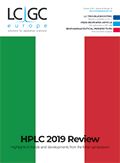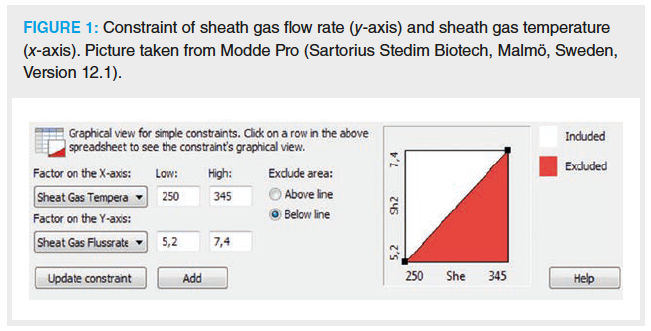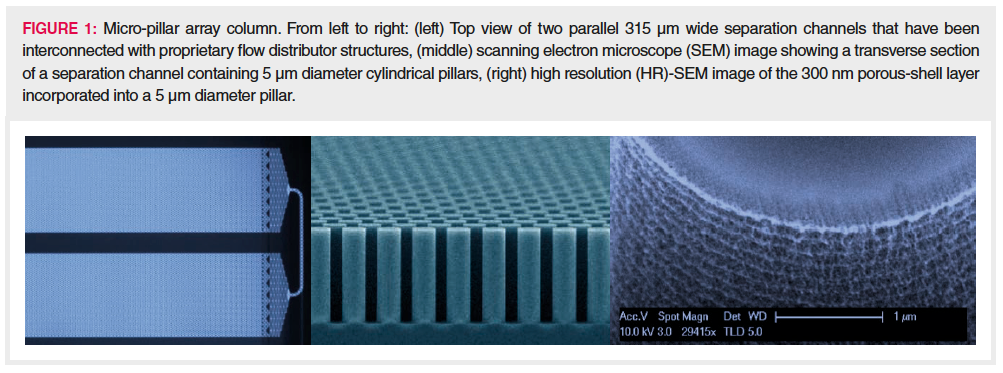The 13th International Scientific Conference on Ion Chromatography and Related Techniques 2020
The 13th International Scientific Conference on Ion Chromatography and Related Techniques will be held 21–22 April 2020 in Zabrze, Poland.
Image credit: Maksym/stock.adobe.com

The 13th International Scientific Conference on Ion Chromatography and Related Techniques will be held 21–22 April 2020 in Zabrze, Poland.
Ion chromatography, which was established in 1975, has evolved from a simple method for separating the main inorganic anions and cations in water into a sophisticated separation technique that may be coupled with modern detectors to detect trace substances in a variety of gaseous, liquid, and solid samples. Many changes introduced in the stationary phases of the ion-exchange columns have helped to extend the range of the applied eluents and detection methods. At present, the greatest challenges in ion chromatography are related to:
- Introducing new ion-exchange stationary phases
- Improving the suppressor operation efficiency
- Lowering the limits of detection and quantification for analyte ions
- Elaborating new sample preparation methods
- Extending the analysis range with new organic and inorganic substances
- Increasing the use of different ion chromatography types in the molecular biology and genetics research (genomics, proteomics, metabolomics, transcriptomics)
- Establishing new standard and detection methods
- Apparatus miniaturization.
These challenges will all be discussed at the conference. Although ion chromatography is in its early forties, the technique is still evolving and has many applications beyond the determination of inorganic ions. The organizers of the ion chromatography and related techniques conferences have sought to further this development by bringing together researchers from across the globe to present and discuss their research on ion chromatography.
The organizers welcome participants to the 13th International Conference, which will be held in Zabrze, Poland. Participation in the conference is free of charge, and is an excellent opportunity to discuss new developments in the field of ion chromatography and related techniques, share experiences, and present results to your peer group.
Conference proceedings with cutting-edge peer-reviewed papers in the field of ion chromatography and related techniques will be published prior to the conference.
As the host city for the conference, Zabrze has a lot of to offer with a wide variety of bars and restaurants featuring traditional Polish cuisine. For those looking for a museum with a difference, the “Guido Mine” allows visitors to travel as far as 355 metres underground to get first-hand experience of coal mining life.
The city also features a Municipal Botanical Garden created in 1928, which is spread across six hectares of land. The garden is home to thousands of specimens of plants, trees, and shrubs, as well as two greenhouses with 5000 plants from climate zones across the planet.
Information from previous conferences can be found at: http://ipis.pan.pl/pl/pm-konferencje/konferencje-planowane
For additional information please e-mail Rajmund Michalski at rajmund.michalski@ipis.zabrze.pl







![LCE0918_Liu Bio[2]-1.jpg LCE0918_Liu Bio[2]-1.jpg](/_next/image?url=https%3A%2F%2Fcdn.sanity.io%2Fimages%2F0vv8moc6%2Fchroma%2Fbdc67a7da979cf6ba6cf989305aae36e6b3a9575-200x262.jpg%3Ffit%3Dcrop%26auto%3Dformat&w=3840&q=75)










New TRC Facility Accelerates Innovation and Delivery
April 25th 2025We’ve expanded our capabilities with a state-of-the-art, 200,000 sq ft TRC facility in Toronto, completed in 2024 and staffed by over 100 PhD- and MSc-level scientists. This investment enables the development of more innovative compounds, a broader catalogue and custom offering, and streamlined operations for faster delivery. • Our extensive range of over 100,000 high-quality research chemicals—including APIs, metabolites, and impurities in both native and stable isotope-labelled forms—provides essential tools for uncovering molecular disease mechanisms and exploring new opportunities for therapeutic intervention.
New Guide: Characterising Impurity Standards – What Defines “Good Enough?”
April 25th 2025Impurity reference standards (IRSs) are essential for accurately identifying and quantifying impurities in pharmaceutical development and manufacturing. Yet, with limited regulatory guidance on how much characterisation is truly required for different applications, selecting the right standard can be challenging. To help, LGC has developed a new interactive multimedia guide, packed with expert insights to support your decision-making and give you greater confidence when choosing the right IRS for your specific needs.
New TRC Facility Accelerates Innovation and Delivery
April 25th 2025We’ve expanded our capabilities with a state-of-the-art, 200,000 sq ft TRC facility in Toronto, completed in 2024 and staffed by over 100 PhD- and MSc-level scientists. This investment enables the development of more innovative compounds, a broader catalogue and custom offering, and streamlined operations for faster delivery. • Our extensive range of over 100,000 high-quality research chemicals—including APIs, metabolites, and impurities in both native and stable isotope-labelled forms—provides essential tools for uncovering molecular disease mechanisms and exploring new opportunities for therapeutic intervention.
New Guide: Characterising Impurity Standards – What Defines “Good Enough?”
April 25th 2025Impurity reference standards (IRSs) are essential for accurately identifying and quantifying impurities in pharmaceutical development and manufacturing. Yet, with limited regulatory guidance on how much characterisation is truly required for different applications, selecting the right standard can be challenging. To help, LGC has developed a new interactive multimedia guide, packed with expert insights to support your decision-making and give you greater confidence when choosing the right IRS for your specific needs.

.png&w=3840&q=75)

.png&w=3840&q=75)



.png&w=3840&q=75)



.png&w=3840&q=75)